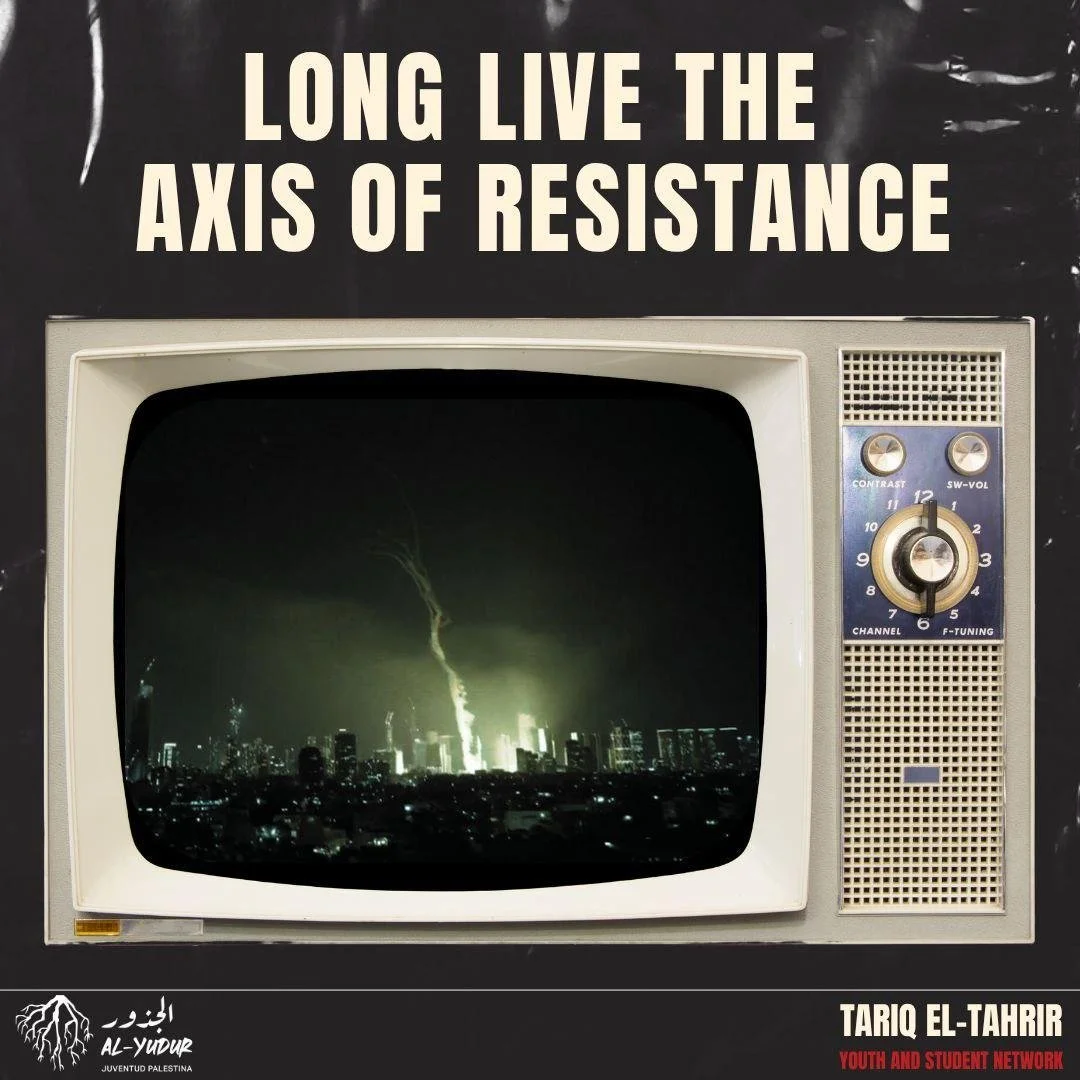Tariq el-Tahrir Network Praises Iran, Calls Violence “Moral Duty” in Escalating Pro-Terror Campus Rhetoric
Executive Summary
The Tariq el-Tahrir Youth and Student Network released a new post declaring full solidarity with Iran and the so-called “Axis of Resistance,” celebrating missile attacks on Israel and framing violent resistance as a legitimate and necessary response to Zionism and U.S. imperialism. The group’s rhetoric glorifies armed struggle and reinforces its previous support for Elias Rodriguez, the man charged with the May 2025 murder of two Israeli diplomats in Washington, D.C., which they deemed a “morally righteous” act. This statement highlights the group’s ideological alignment with Iranian state narratives and signals the continued radicalization of student-led anti-Israel activism.
Analysis
In its June 21 post, Tariq el-Tahrir reiterates its deep alignment with the goals of Iran, Hezbollah, and other armed factions by describing their military actions as “legitimate expressions of international law” and “a moral mandate.” The post couches its worldview in anti-colonial language, claiming that decolonization must be violent and that neutrality in such conflicts amounts to complicity in genocide. With rhetoric lifted directly from Iranian and Hezbollah propaganda, the group positions itself as an ideological ally in a transnational “resistance” bloc that includes Yemen, Lebanon, Iraq, and Iran.
This is the same group that previously led the effort to defend Elias Rodriguez after he killed two Israeli diplomatic staff in Washington, D.C. Through manifestos and rallies, they and their allies—including Unity of Fields, the DSA Liberation Caucus, and Samidoun affiliates—argue that Rodriguez’s actions were justified under international law and necessary due to state inaction. Now, by tying Iran’s regional military actions into the same moral logic, Tariq el-Tahrir attempts to elevate that domestic terror attack into the broader framework of “global resistance.”
Their messaging celebrates Iranian military strikes and implies that Western embassies, military targets, and even civilian infrastructure connected to Israel are legitimate fronts in a global anti-imperialist war. Their use of UN General Assembly Resolution 3070—meant to legitimize resistance against colonial regimes—is a legal distortion aimed at giving cover to attacks on diplomats and civilians.
Further context underscores this ideological threat. Groups linked to Tariq el-Tahrir—such as SUPER UW, which vandalized a university building while chanting pro-Hamas slogans, or Samidoun, designated a terrorist entity by the U.S.—have become fixtures in the modern anti-Israel protest ecosystem. Their actions increasingly normalize the idea that physical violence is not just defensible, but required. This turn is no longer fringe. As reports from the Network Contagion Research Institute reveal, many of these organizations are directly or indirectly influenced by international actors like Iran or China, using U.S. campus activism as a proxy space for foreign propaganda goals.
The campaign to “globalize the intifada” is not merely symbolic. It represents a shift from advocacy to militancy, enabled by radical ideologues in university circles, funded networks with opaque international ties, and a political environment that often fails to confront antisemitism in progressive spaces. With calls for escalation now tied to Iran’s regional war posture, this student network is effectively importing foreign conflict rhetoric into domestic discourse—and potentially inciting violence on U.S. soil under the guise of solidarity.


